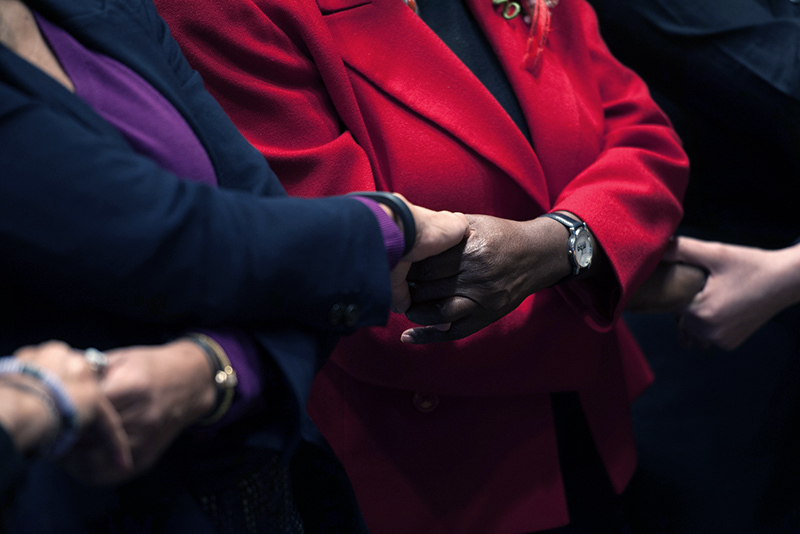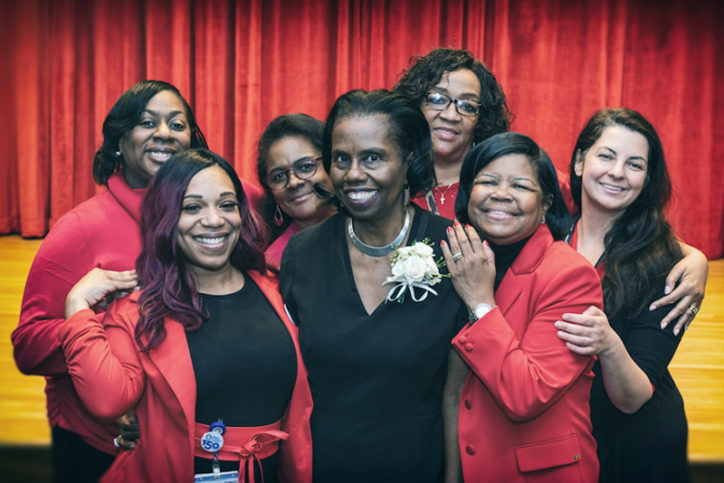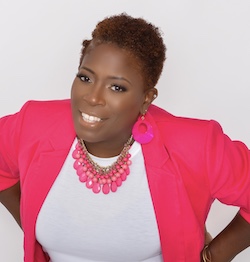What Martin Luther King, Jr. taught us about leadership

Among the individuals who have helped shape American history, the Reverend Dr. Martin Luther King, Jr. stands out. As one of the key leaders of the civil rights movement, he was instrumental in overturning racist laws that segregated public spaces and treated Black Americans as second-class citizens. After years of marches and sit-ins, after nonviolent protesters were brutally attacked and the national outcry that resulted, President Lyndon B. Johnson signed the Civil Rights Act of 1964 and the Voting Rights Act of 1965.
Boston Children’s celebrates Dr. Martin Luther King, Jr. every January in an event that typically draws standing-room-only crowds. When the pandemic forced the cancellation of large gatherings, organizers moved the event online. In 2021 and 2022, attendance shot up to almost 1,000.
It took thousands of people to achieve these civil rights milestones, and it took a leader like Dr. King to unite them around a shared purpose. “People marched with Martin Luther King, even though they knew they might get beaten,” says Karol Jordan, chair of the MLK Observance Committee at Boston Children’s Hospital. “They believed in his vision and knew he would stand with them.”
Here, Jordan and two other organizers of the MLK Observance Committee talk about Martin Luther King, Jr., his legacy, and how he inspires them as leaders.
Leaders draw strength from their convictions
Shani Kelly, Operations Administrator and Executive Assistant, Human Resources; MLK Observance Committee member since 2019: Martin Luther King refused to sit back and live in injustice. He envisioned a world in which his children, his people, would not be judged by the color of their skin. He motivated people to face their fears and never give up. I carry that lesson with me. As a leader, you’re going to face challenges, you may fail, but leadership is getting back up — with grace, with poise and courage — and having the strength within you to get back up again. You have to have that kind of persistence to be a leader.

Leaders lift people up

Angela Perry, Practice Administrator, Martha Eliot Health Center; MLK Observance Committee member since 2013: Martin Luther King taught me that leadership is about what the people take away when you’re gone. Did your presence impact them in a way that cultivates change and moves the needle forward? I make it a point to know all the people who work at Martha Eliot by name. I ask them how they’re doing, and I wait for an answer. It’s important that they know I care about them, where they work, and what their working conditions are.
Karol Jordan, Technical Training Specialist, Human Resources; MLK Observance Committee member since 1995: People remember how you make them feel more than what you say. I always want people to feel that they can come to me and be treated with respect. When we’re planning this event, we don’t always agree, but we’re always respectful. I make sure everyone has a chance to share their views because every voice matters.
Leaders roll up their sleeves in the face of crisis
Angela: He had a boots-on-the-ground style of leadership that inspires the way I approach my role. The pandemic has stretched our resources like never before. As a leader, I need to understand that many of the staff at Martha Eliot are dealing with the same issues our patients are dealing with. But we expect them to come to work each day and rise to the occasion. Leaders can’t be weary; they need to be there for their team. For me, that means coming out of my office and working beside my staff, making sure they know I support them. Leaders need to be that connected.
Leaders inspire change
Shani: He was a transformational leader. He believed in what he was doing, he communicated his vision effectively, and he got others on board. Those are qualities of a great leader: they demonstrate how ordinary people can have an impact. I always remind people on my team that they are a part of the change. If they want to see changes, if they want career growth, if they want more engagement, they need to get on committees and make their voices heard.
Leaders grow through mentorship
Karol: I stand on the shoulders of people who have mentored me at Children’s. I came here 44 years ago, and many people have guided me along the way. Early in my career, my supervisor called me into her office and said some things that helped put me on the right track. When she left, she made me supervisor. Her leadership changed my life. That’s one of the things we’re celebrating when we celebrate Dr. King.
Angela: Karol is transformative as well. She has empowered all of us to take leadership positions in the MLK Committee. She delegates, and she has a level of trust in the people she assigns duties to. She doesn’t look for praise. She has led us fearlessly all these years and continues to push the envelope. Because of her, the MLK Observance at Boston Children’s has remained relevant, it hasn’t fallen to the side. She’s the kind of leader we need, not only at the hospital, but in our communities.
Boston Children’s leadership in health equity
Today, the health and wellbeing of far too many children suffers from lack of access to care. Through multiple initiatives, Boston Children’s is working to ensure that all children receive the care they need regardless of race, gender, sexual orientation, or economic status. Our Office of Health Equity and Inclusion works with departments throughout the hospital to promote culturally effective care. The Sandra L. Fenwick Institute for Pediatric Health Equity and Inclusion advances pediatric health equity by sharing what we’ve learned at Boston Children’s with providers around country and the world.
Martin Luther King Observance Committee
Karol Jordan, Senior Technical Training Specialist, Human Resources
Lillian Hughes, Manager, Patient Financial Services
Shani Kelly, Operations Administrator and Executive Assistant to the Executive Vice President of Human Resources and System Chief Human Resources Officer, and the Vice President of Human Resources
Ourania Pappas, Web-Based Training Developer, Clinical Education & Informatics
Angela Perry, Practice Administrator I – Amb, Martha Eliot Health Center
Malissa Williams, Supervisor, Food Services
Sheila Wornum, Clinical Administrative Coordinator, Anesthesia, Critical Care and Pain Medicine
Learn about initiatives in health equity and inclusion at Boston Children’s.
Related Posts :
-

Making pediatric health equity research truly equitable: An EDI review process
A burgeoning number of studies are examining pediatric health equity, diversity, and inclusion (EDI). But if not done right, health ...
-

Medical care for youth with neurodevelopmental disabilities: A call for change
According to national data, one in six children has a neurodevelopmental disability (NDD) such as autism, intellectual disability, or ADHD. ...
-

Revisiting race and ethnicity in clinical guidelines
Health care institutions often rely on clinical pathways in assessing patients and making decisions about their care. Some of these ...
-

Helping clinicians embrace family-centered rounds
If you’ve ever been hospitalized, you may have experienced this: groups of doctors coming in and talking about you ...





